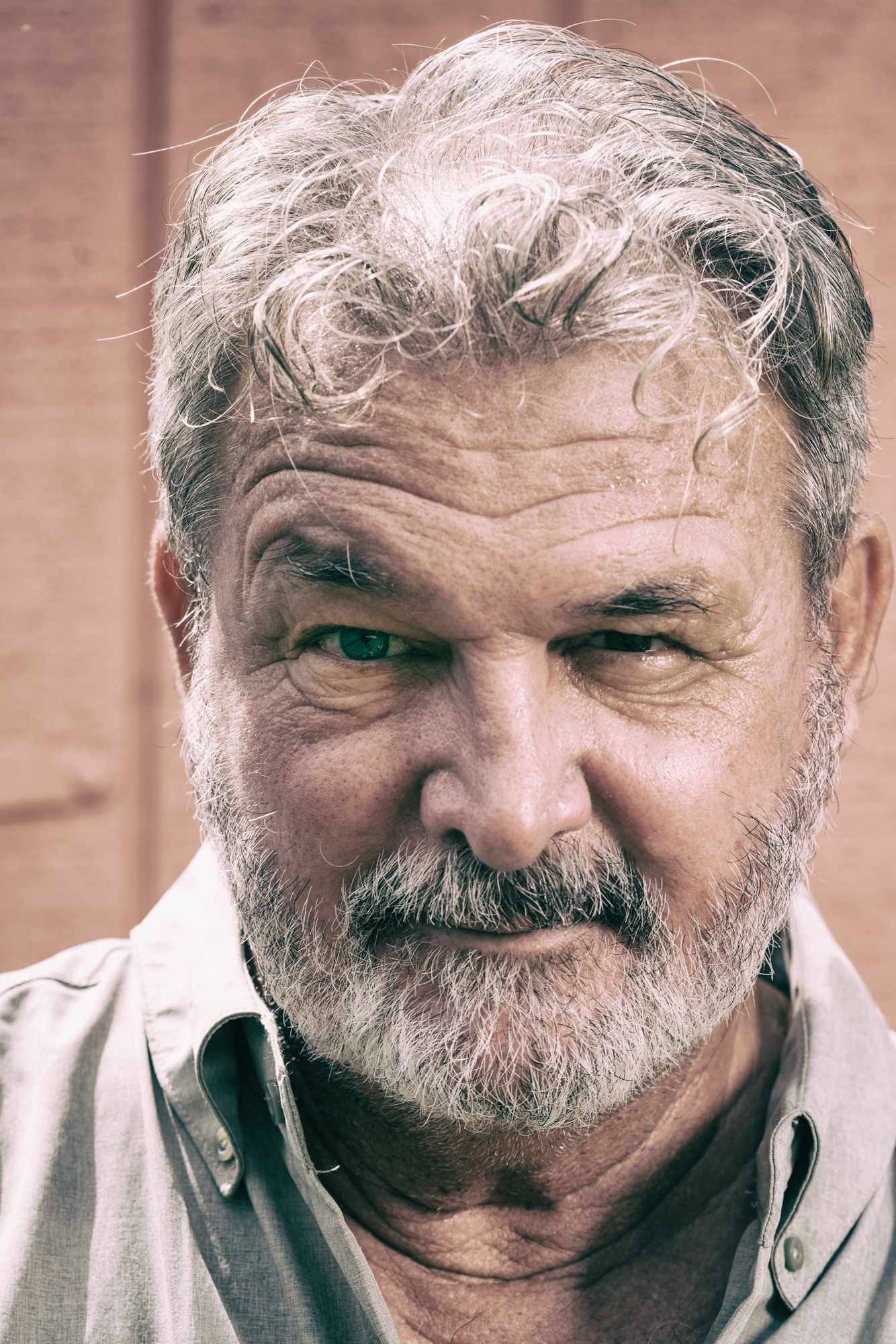

The Ballad of Pigeon Jim
Pigeons have a long and storied history in Cuba dating back centuries when the Spanish colonized Cuba and the birds were used to carry messages tied to their ankles.
Meet Jim Hale known locally as Pigeon Jim. He is a boat captain by trade and an animal advocate by circumstance. The son of a cruel man with a quick temper, Jim learned early on to identify who and what needed protection. Tenderness became his rebellion. As a teenager he nursed a wild pigeon back to health and into friendship. “He was too young to survive so I took him in and hand fed him. He grew up and followed me everywhere I went. When I got home from school, he’d fly down and land on my shoulder. He was waiting for me to come home every day.”
After a stint in the Army and a turn at college earning degrees in environmental health and business management at Old Dominion, Jim wanted rid of winter and out of Virginia. A game of chance led him to the end of the road. “I got stoned with a friend of mine at her house, and said I don’t want to live here anymore, but didn’t know where I wanted to go. She had a map of the United States in her hallway. She blindfolded me and spun me around three times. I walked down and stuck a pushpin in the Gulf of Mexico. The closest place to the pin was Key West.” Bowing to the divination of the pushpin, Jim headed south with two rescued pit bulls and $300.
Soon after moving to Key West, Jim graduated from fostering pigeons to breeding them, entering the lucrative and highly competitive world of pigeon racing. He’s won The North American Breeders Cup a handful of times, once with a bird named Sandy, so called for flying through, and emerging from the Hurricane of the same name.
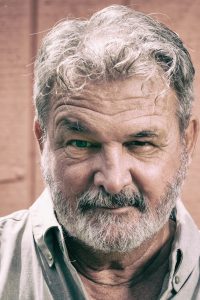
Pigeon racing can be traced to the earlier tradition of training carrier pigeons to deliver messages, a practice that’s been in use since at least the Roman Empire. “Over the 1000s’ of years that pigeons have been trained, people started betting on which one would get there first. That’s what you wanted, to get your messages where they were going faster. That’s how it evolved.”
Jim points to moments in ancient and modern military campaigns where the intervention of pigeons has saved lives or altered the course of history; from a carrier pigeon reporting Napoleon’s defeat at Waterloo to the birds being used today in Pakistan to transport messages and medicine across the harsh mountain terrain.“They’re saving lives continuously. The rock dove has saved more human lives than any other animal.”
In turn and perhaps to repay that debt, Jim saves them, rescuing hundreds of racing pigeons from Cuba every year. “I rescue them because no one else is doing it. They’re domesticated animals. Racing pigeons are bred and trained by handlers so they don’t have the necessary skills to survive in the wild.” Jim identifies birds by the elastic bands that circle their legs, denoting their country of origin. “They don’t come with a story,” but he speculates that many of the Cuban racing pigeons lose their way fleeing predation from hawks who migrate north in the spring. “Imagine you’re in the plains of Africa and a pride of lions starts chasing you. The last thought in your mind is ‘where do I live?’ You’re thinking what direction do I need to go to get away?”
For those that are cast to Key West, Jim offers refuge. “I give them everything they could want. They have water and racing pigeon food, and their own perch. I recondition them. I want to get them feeling healthy and comfortable and then let them go.” As a safety precaution, he keeps the birds contained in a loft space until the local hawk migration is complete. Sometimes the release takes on the tone of ritual: “One Saturday in the beginning of May it was just a really nice morning and it felt right. I had Latin music on the radio. I let them go and they circled three times above me. Fifty five of them left all at once. You could set a beeline to Havana, three circles and boom they were gone.”
While most of the birds Jim rescues leave the loft as soon as they’re fit to fly home, others remain awhile longer, a testament to his nature and capacity for nurture. “A boat captain friend of mine rescued a half drowned pigeon offshore. I got her that night and I didn’t think she was going to make it. I had to drain the water out of her. She survived, and she stayed. She had the option of flying back, but she stayed for four or five years. And then finally, this year, she flew back to Cuba.”
A veteran of loving and letting go, Jim nurses the pigeons back to health but doesn’t send them home with messages or any other evidence of his charitable work. “I don’t do it for me. I do it for the birds.” Yet, he credits caring for the birds with keeping him in touch and in tune. “It gives me a sense of a balance, to be able to maintain that love, that admiration and awe.”
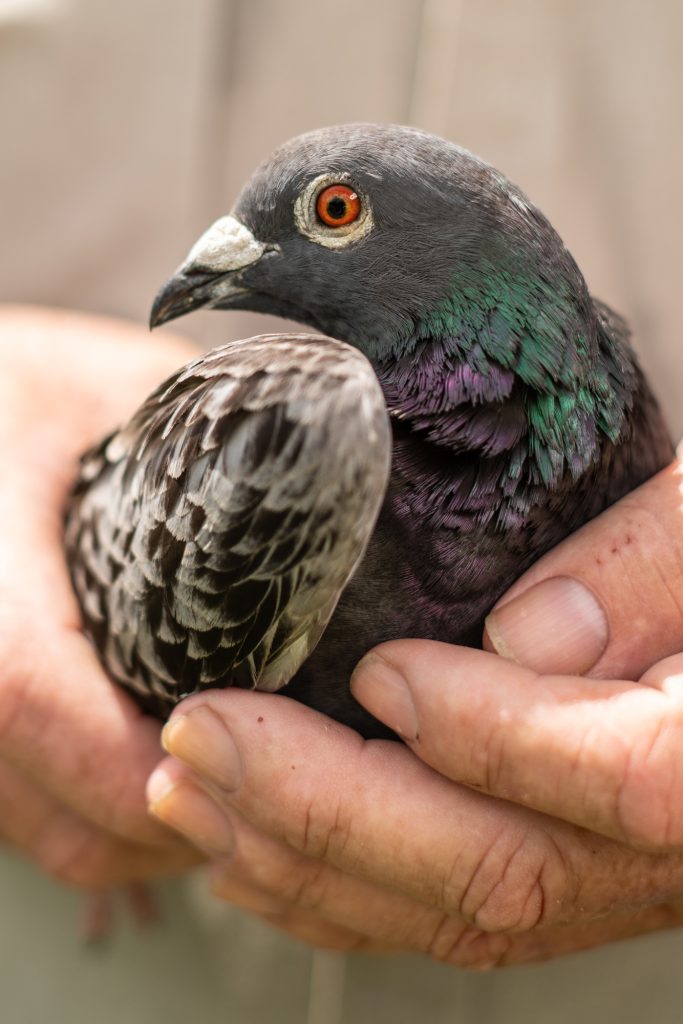
For Jim, that love, admiration and awe extends to Cuba, its people and pigeons alike. “You can feel it in the air there. You see generations of people dancing. In Cuba they laugh from the belly and sing from the heart.” On his last trip to the island, Jim visited pigeon racing legend DeRadio Diaz, “I went to find the best pigeon guy I could. Even with my sucky Spanish and his broken English, we understood each other perfectly. We climbed up to his roof, where he kept his pigeons. At one point he reached up and pulled down a plastic cup and a bottle of rum. He poured me a healthy shot, and there was dried pigeon shit swirling around in it. I asked him why he kept the booze there, and he said, with this big smile, ‘my wife doesn’t like me drinking, but she’s afraid of heights.’”
Be it bottles or birds, Jim finds community with DeRadio and the pigeon racing community of Cuba. “I identify with the people in Cuba. That’s why I rescue these birds. The people that have pigeons are sacrificing the little that they do have to feed and care for them. They have a dream. If a pigeon wins a race, they have a chance of winning up to a year’s salary. They’re born with that dream, just like I was born with it. Their passion is there just like my passion is there. If all I have to do is rescue a pigeon, if that’s all I have to do to return their dream to them, then that’s all I want.”
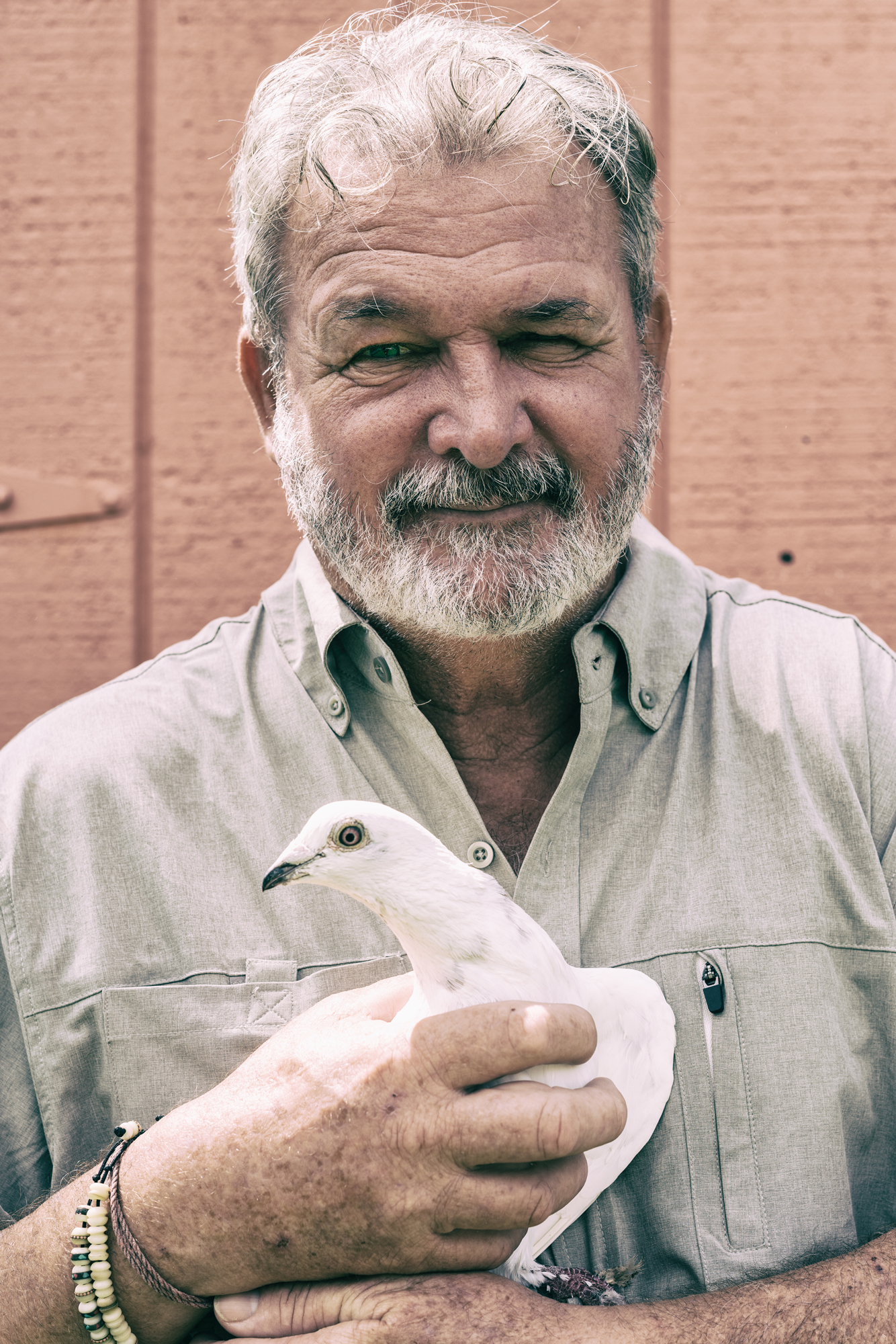
- She Moves Through Music - May 24, 2024
- The Ballad of Pigeon Jim - March 27, 2022
- Barry Cuda on the History of Music - May 24, 2021





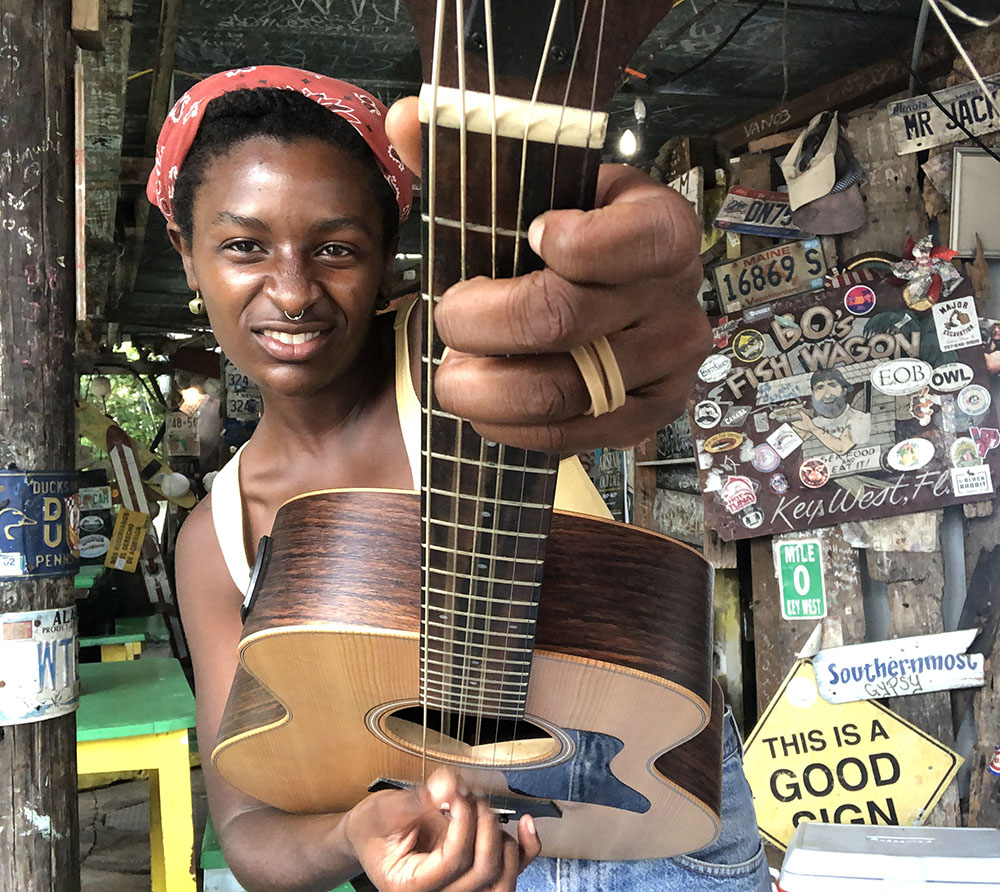 She Moves Through Music
She Moves Through Music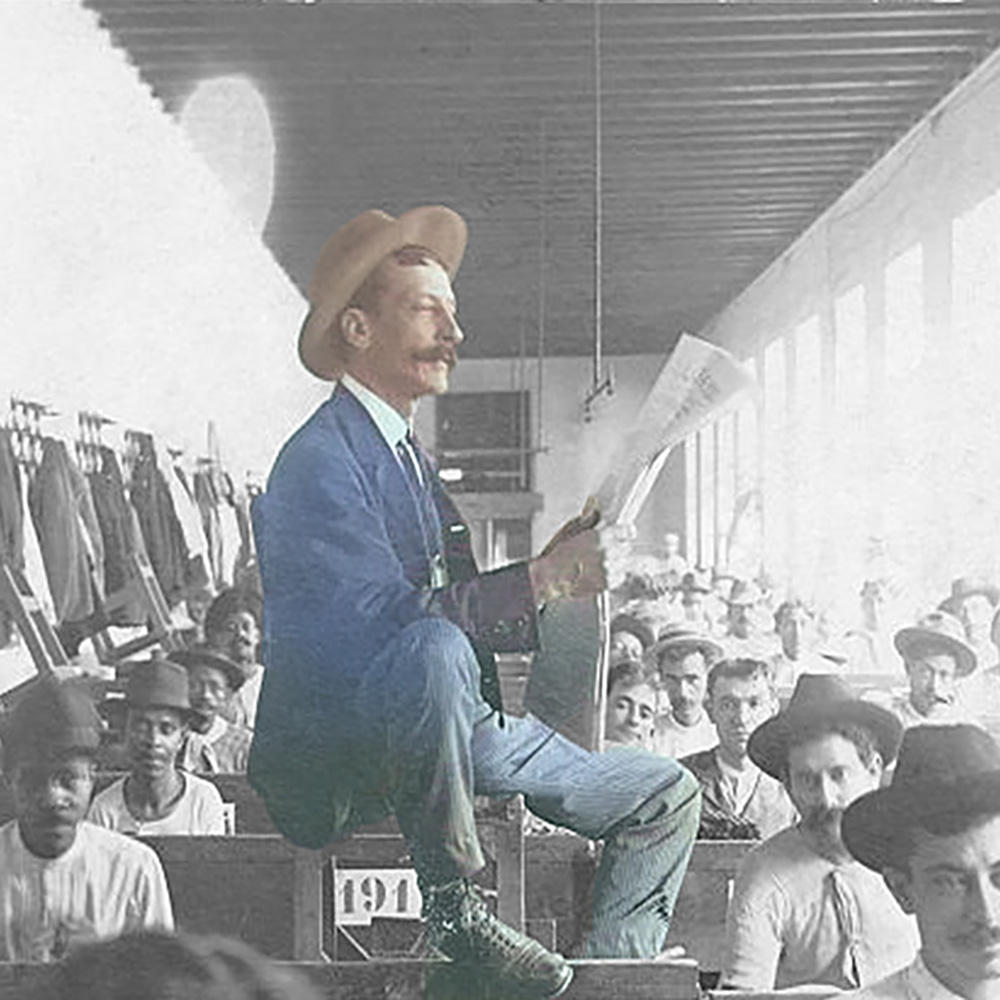 Paths to Freedom
Paths to Freedom What’s Your Intention?
What’s Your Intention? No Mic Open Mic at Andy’s Cabana
No Mic Open Mic at Andy’s Cabana